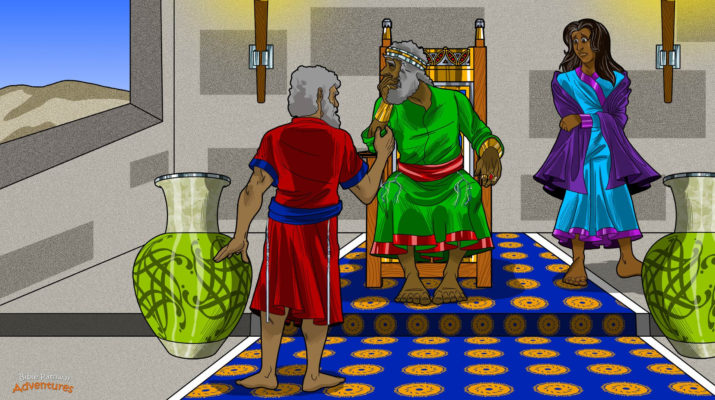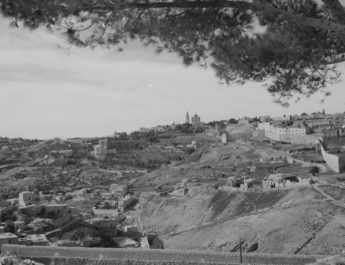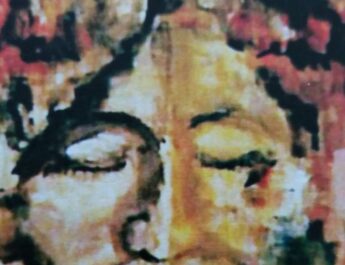Psalm 72:1-4, 12-14, 18-19
A Women’s Lectionary 34
Of Solomon.A
1 GiveB the kingC your justice,D O God,E
A “Solomon” = Shelomoh. From shalam (to be complete or sound; to have safety mentally, physically, or extending to one’s estate; so, if these things are safe and complete, the implication is that one would be friendly; and, if being friendly, one would make amends and that friendship would be reciprocated). This is Solomon or Shelomoh, meaning “peaceful.” It is the same word as the Hebrew word for peace – shalom.
B “give” = natan. This is to give, put, set, offer. It is to give literally or figuratively.
C “king” = melek. From malak (to be or become king or queen, to rise to the throne, to be crowned; by implication, to take counsel). This is king or royal.
D “justice” = mishpat. From shaphat (to judge, defend, pronounce judgment, condemn, govern). This is a verdict or formal sentence whether from humans or from God. It includes the act of judging as well as the place that judging takes place, the suit itself, and the penalty. Abstractly, this is justice, which includes the rights of the participants.
E “God” = Elohim.
and your righteousnessF to a king’s son.G
2 May he judgeH your peopleI with righteousnessJ
and your poorK with justice.
F “righteousness” = tsedaqah. From the same as tsedeq (rightness, righteousness, vindication. It is everything that is just or ethical. That which is right in a natural, moral, or legal sense. It also includes just weights (i.e. true weights). Figuratively, this is justice, righteousness, equity – even prosperity). This is righteousness, justice, righteous acts, and moral virtue.
G “son” = ben. From banah (to build or obtain children). This is son, age, child. It is son in a literal or figurative sense.
H “judge” = din. This is to judge, defend, dispute, govern, quarrel, plead.
I “people” = am. From amam (to darken, hide, associate; creating shadows by huddling together). This is people or nation. It can be used specifically for a tribe, collectively of troops or armies, or figuratively to refer to a flock of animals.
J “righteousness” = tsedeq. Related to “righteousness” in v1. See note F above.
K “poor” = ani. From anah (to be bowed down; humility or being browbeaten, oppressed, afflicted, or depressed; literal or figurative – depressed in mood or circumstance). This is humble, lowly, poor, or afflicted.
3 May the mountainsL yieldM prosperityN for the people,
and the hills,O in righteousness.P
L “mountains” = har. From harar (hill or mountain). This is mountain, hill, hilly region.
M “yield” = nasa. This is to lift in a broad sense, literally and figuratively. So it could be to carry, take, or arise. It could also be bring forth, advance, accept.
N “prosperity” = shalom. Related to “Solomon” in superscript. From shalam (see note A above). This is completeness, soundness, welfare, favor, friend, good health. It is to be safe and figuratively well, happy, at peace, friendly. Abstractly, it includes the ideas of welfare and prosperity (not in excessive wealth, but in having enough).
O “hills” = gibah. From the same as Geba (Geba or Gibeah; hillock); from the same as gabia (cup, bowl, flower; root might mean being convex). This is hill or little hill.
P “righteousness” = tsedaqah. Same as “righteousness” in v1. See note F above.
4 May he defend the causeQ of the poor of the people,
give deliveranceR to theS needy,T
and crushU the oppressor.V
Q “defend the cause” = shaphat. Related to “justice” in v1. See note D above.
R “give deliverance” = yasha. To deliver, defend, help, preserve, rescue, be safe. Properly, to be open, wide or free, which implies being safe. Used causatively, it means to free.
S {untranslated} = ben. Same as “son” in v1. See note G above.
T “needy” = ebyon. From abah (to consent, obey, want, yield, accept). This is needy, poor, beggar. Someone who is wanting.
U “crush” = daka. 18x in OT. This is to crush or break into pieces. It can also mean bruise, being contrite or oppressed, to destroy, or be humble.
V “oppressor” = ashaq. This is to wrong, deceive, violate, or use oppression.
12 For he deliversW the needy when they call,X
the poor and those who have no helper.Y
13 He has pityZ on the weakAA and the needy
and savesBB the livesCC of the needy.
W “delivers” = natsal. This is to snatch someone or something away in a good sense – as rescue, defend, or deliver – or in a bad sense – as strip or plunder.
X “call” = shava. This is crying or shouting aloud, generally seeking freedom from some kind of trouble.
Y “helper” = azar. This is to surround, which implies encircling to protect someone or help them out. It can also be help, ally, or support.
Z “has pity” = chus. This is properly to cover. In a figurative sense it means looking with compassion, pitying, regarding, or sparing someone.
AA “weak” = dal. From dalal (to be low, hang, fade, be emptied, become poor, be oppressed). This is lean, weak, needy, poor. Properly, it is one who is dangling.
BB “saves” = yasha. Same as “give deliverance” in v4. See note R above.
CC “lives” = nephesh. Related to naphash (to refresh or be refreshed). This is soul, self, person, emotion. It is a breathing creature. Can also refer to appetites and desires.
14 From oppressionDD and violenceEE he redeemsFF their life,
DD “oppression” = tok. 3x in OT. Perhaps from tavek (among, middle, in the midst, center; perhaps properly to sever). This is injury, deceit, or oppression.
EE “violence” = chamas. From chamas (to violate, do violence, to wrong; implies mistreatment). This is violence, cruelty, damage, wrong, injustice, or unrighteous. Violence implies a wrong done. The term is also used to describe unjust gain.
FF “redeems” = gaal. This is to redeem someone or something according to kinship laws. So, it could be acting on a relative’s behalf to buy back their property, to marry one’s brother’s widow, etc. This could be more briefly translated as to redeem, acts as kinsman, or purchase. As a noun, it could be deliverer or avenger.
and precious isGG their bloodHH in his sight.II
GG “precious is” = yaqar. 11x in OT. This is to be precious, costly, rare, valued; properly, to be heavy; figuratively, valuable or inhibit.
HH “blood” = dam. Perhaps from damam (to cease, be or become mute, silent, still, cut off, hold peace, be astonished, die). This is blood, bloodshed, bloodguilt, lifeblood, and death. It is used for people and animals. More often blood from a wound or the blood of the innocent. Used figuratively for violence or for wine. Closely tied to life and death.
II “sight” = ayin. This is eye in a literal or figurative sense so eye, appearance, favor, or a fountain (the eye of the landscape).
18 Blessed beJJ the Lord,KK the God of Israel,LL
JJ “blessed be” = barak. This is to kneel, to bless. It is blessing God as part of worship and adoration or blessing humans to help them. It can be used as a euphemism to say curse God.
KK “Lord” = YHVH. From havah (to be, become) or hayah (to come to pass, become, be). This is the name of the God of Israel, the self-existent and eternal one, the tetragrammaton. This pronunciation has been lost to time so “Lord” is generally used in its place.
LL “Israel” = Yisrael. Related to “God” in v1. From sarah (to persist, exert oneself, contend, persevere, wrestle, prevail) + el (see note E above). This is Israel, meaning God strives or one who strives with God; new name for Jacob and for his offspring. This refers to the people and to the land.
who aloneMM doesNN wondrous things.OO
19 Blessed be his gloriousPP nameQQ forever;RR
MM “alone” = bad. From badad (to divide or be separated; alone, solitary, lonely, isolated, straggler). This is apart, alone, separation, body part, tree branch, except. It can also be a city’s chief.
NN “does” = asah. This is to make, do, act, appoint, become in many senses.
OO “wondrous things” = pala. From pele (wonder, miracle, wonderful, marvelous thing). This is to be extraordinary, to arise, to be great or accomplish.
PP “glorious” = kabod. From kabad (to be heavy, weighty, burdensome). This is weighty. Figuratively, glorious, abundant, riches, honor, splendor – a reference to one’s reputation or character. This word is often used to describe God and God’s presence.
QQ “name” = shem. May be from sum (to put, place, set). This is name, fame, renown. A name was thought to indicate something essential about a person – something about their individuality. So, this word can also mean honor, authority, or character.
RR “forever” = olam. This is a long scope of time whether in the past (antiquity, ancient time) or in the future (eternal, everlasting).
may his glory fillSS the wholeTT earth.UU
AmenVV and Amen.
SS “fill” = male. This is fill, satisfy, replenish, accomplish, fulfill, confirm, or consecrate. It is fill in a literal or figurative sense.
TT “whole” = kol. From kalal (to complete). This is all or every.
UU “earth” = erets. Root may mean to be firm. This is earth, ground, field land, or country.
VV “amen” = amen. From aman (to believe, endure, fulfill, confirm, support, be faithful, put one’s trust in, be steadfast. Figuratively, this is to be firm, steadfast, or faithful, trusting, believing, being permanent, morally solid). This word is literally firmness, but figuratively fidelity, faithfulness, honesty, responsibility, trust, truth, steadfastness. Properly, it is to be sure, certain, or firm. This is a word of emphasis indicating that something crucial follows.
Image credit: “Solomon the Temple Builder” by Curtis and Pip Reid of Bible Pathway Adventures.




